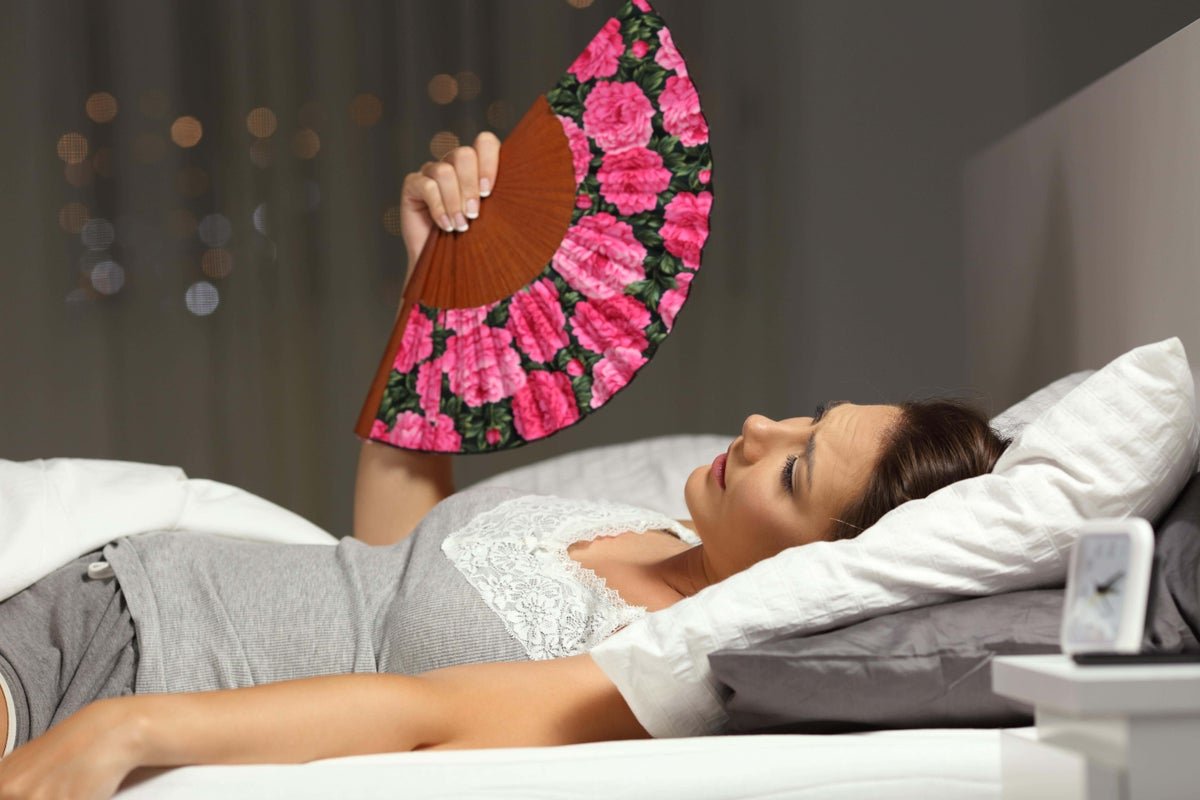If you have been struggling to fall asleep over the past few nights, tossing and turning in bed, you’re not alone.
While many of us enjoy the gorgeous sunny days, the muggy evenings are a different story… and not nearly as pleasant.
To better understand why these humid nights can severely disrupt our sleep, we spoke with Dr Greg Elder, associate director of Northumbria Sleep Research at Northumbria University. He has shed some light on how humidity can impact our sleep quality and patterns, and has also shared some useful tips to help you get a better night’s rest.
How does humidity impact quality of sleep?
“We don’t know a lot about how humidity alone can affect our sleep, but we do know that humidity affects how we perceive temperature,” says Elder. “As humidity levels increase, the air temperature will feels hotter.
“Sleep and temperature regulation are very closely related – so the hotter it feels, the worse our sleep tends to be, and this is worse when we can’t properly acclimatise to it. For example, when a heatwave happens.”
Can humidity affect our circadian rhythms directly?
“Yes. How much sleep we get, and the quality of it, is affected by the interaction between our sleep need and our body clock (our circadian rhythms),” says Elder. “Humidity affects our sleep and circadian rhythms directly by affecting how hot we feel.
“Our body temperature has its own circadian rhythm. Normally our body begins to cool down as we head towards our bed time and this opens our ‘sleep window’ but hot temperatures can interfere with this.
“Hot temperatures can also directly interfere with our sleep by affecting how much slow-wave sleep we get during the night.” This is important because slow-wave sleep (deep sleep) plays a key role in growth, memory and immune function, according to the Sleep Foundation.
What are the common signs that humidity levels might be disturbing your sleep without you realising it?
“High temperatures can interfere with our brain activity during sleep, and also the way in which our brain cycles between different stages of sleep (light sleep, deep sleep and rapid eye movement sleep, which is the stage of sleep where we typically dream), so it is possible that high temperatures and humidity could be bad for our sleep without us realising,” explains Elder.
“However, normally when we have a bad night of sleep, the effects will kick in when we get up the next morning. Sleep deprivation makes us feel tired and irritable, and it may be harder to concentrate and make decisions as normal.”
How does high humidity contribute to issues like night sweating or restlessness during sleep?
“As the humidity increases, this makes it harder for our body to sweat normally,” says Elder. “This means that during hot periods, especially when there is high humidity, our sweat can’t evaporate as normal, and it is harder for the body to cool itself.
“This is bad for our sleep and can make us feel restless if we can’t get to sleep because of that.”
Here are some of his suggestions on how to combat the humidity to achieve blissful sleep this summer…
Aim to keep your bedroom temperature near 19°C
“Keep your bedroom at as close to 19°C as possible,” advises Elder. “Bedroom temperatures that are over 25°C are bad for sleep. Electric fans can help.”
Make sure your bedroom is dark
Invest in some blackout curtains and blinds if you find that the evening light is creeping in and disturbing your ability to fall asleep.
“Keep your bedroom as cool and dark as possible and avoid sleeping anywhere else other than your bed,” recommends Elder.
Get up if you can’t sleep
If you’re lying awake for hours, get out of bed and do something calming, like reading a book.
“Avoid staying awake in your bed if you can’t sleep. Get up if you can and only go back to bed when you feel sleepy,” advises Elder.
Stay hydrated throughout the day
“Drink plenty of water during the day because this will help your body to keep itself cool at night,” recommends Elder.
Have a cool shower before bed
“Before going to bed, a cool or lukewarm shower, or foot bath, can be a good way to help your body to relax and tell it that it is time for sleep,” says Elder.
Keep to a regular sleep wake schedule
“Try to keep to your usual sleep and wake schedule – regular sleep timing tends to be associated with better sleep quality,” advises Elder.
#humidity #affects #sleep



